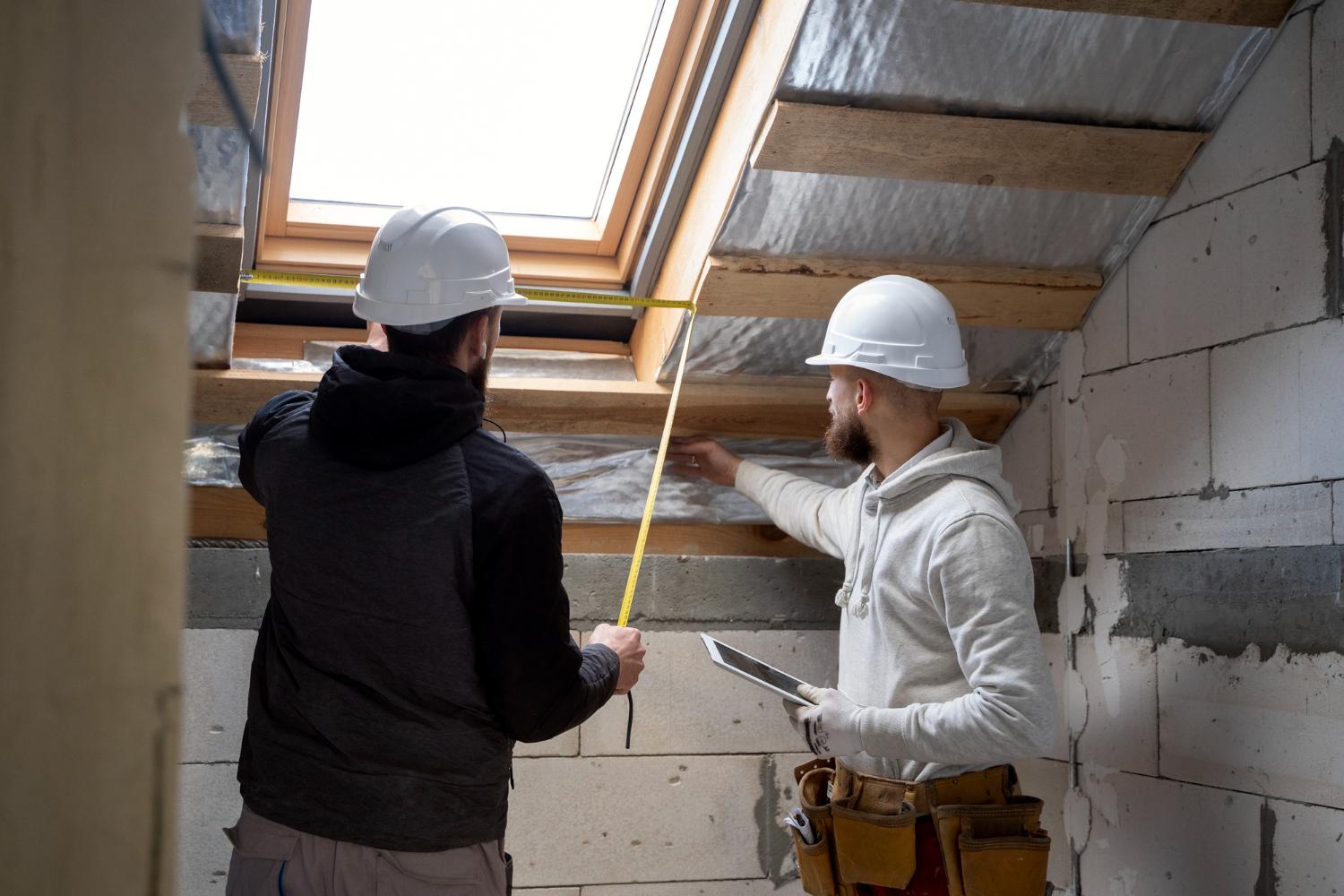Commercial Spray Foam Insulation in the U.S.: A Modern Solution for Energy Efficiency and Building Performance

Commercial spray foam insulation has become a leading solution for enhancing building performance across the United States. As energy regulations tighten and businesses strive for operational efficiency, insulation plays a crucial role in reducing costs, managing indoor climates, and improving overall building durability. Unlike traditional insulation methods, commercial spray foam insulation offers advanced sealing capabilities, making it a preferred choice for warehouses, office buildings, industrial facilities, and retail spaces.
This comprehensive guide explores the benefits, types, application methods, cost factors, and considerations involved in commercial spray foam insulation, with a specific focus on its relevance in the U.S. market.
What Is Commercial Spray Foam Insulation?
Commercial spray foam insulation is a polyurethane-based material applied to walls, ceilings, roofs, and floors in liquid form. Upon application, it expands rapidly and solidifies into a dense, protective layer. This insulation is designed to fill cavities, seal air leaks, and provide both thermal and moisture barriers.
There are two primary types of spray foam insulation:
-
Open-cell spray foam – Lightweight and more flexible, open-cell foam is ideal for interior applications and offers good sound absorption.
-
Closed-cell spray foam – Denser and more rigid, closed-cell foam delivers a higher R-value per inch and greater resistance to moisture and air infiltration, making it more suitable for exterior and high-demand applications.
Why Commercial Buildings in the U.S. Need Effective Insulation
In commercial settings, energy consumption often accounts for a substantial portion of operational costs. Heating, ventilation, and air conditioning (HVAC) systems run continuously to maintain consistent indoor environments, particularly in warehouses, office buildings, and retail complexes.
Commercial spray foam insulation addresses several key concerns for U.S. property owners:
-
Energy efficiency: Reducing energy loss through walls and roofs cuts utility bills and supports sustainability goals.
-
Air sealing: The foam expands to fill even the smallest gaps and cracks, reducing drafts and enhancing climate control.
-
Moisture control: Closed-cell foam prevents moisture penetration, protecting buildings from mold, mildew, and structural deterioration.
-
Code compliance: Many U.S. states have implemented energy codes requiring higher insulation standards for commercial buildings, and spray foam helps meet or exceed these regulations.
Applications of Commercial Spray Foam Insulation
Spray foam insulation is versatile and can be used in various areas of a commercial building. Key application zones include:
-
Roof decks: Especially flat roofs, which are prone to leaks and heat gain/loss.
-
Exterior walls: Enhances thermal efficiency and reduces the load on HVAC systems.
-
Interior partitions: Improves sound control and temperature regulation between spaces.
-
Basements and crawl spaces: Offers protection against moisture and pest infiltration.
-
Ceilings and floors: Especially effective in multi-story buildings for thermal separation and soundproofing.
In climates that experience extreme temperatures—hot summers in the South or freezing winters in the North—these applications are essential for year-round comfort and performance.
Benefits of Commercial Spray Foam Insulation
-
High R-Value Performance
Spray foam offers a high R-value per inch, especially closed-cell types, which typically range between R-6.0 and R-7.5. This makes it more efficient than fiberglass or cellulose insulation. -
Air and Moisture Barrier
The foam expands to seal off leaks and cracks, which helps eliminate air drafts and prevent moisture intrusion—two of the most common issues in commercial buildings. -
Durability and Longevity
Once cured, spray foam does not sag, settle, or degrade over time. It can last 20+ years with minimal maintenance, which is ideal for commercial property longevity. -
Mold and Pest Resistance
Closed-cell foam resists water infiltration, which discourages mold growth. It also acts as a deterrent against pests, which typically infiltrate through gaps in the building envelope. -
Noise Reduction
Open-cell spray foam absorbs sound effectively, which is beneficial in office settings or buildings near noisy areas such as highways or airports.
Energy Efficiency and Sustainability
With growing emphasis on green building practices in the U.S., commercial spray foam insulation supports LEED certification and other sustainable building initiatives. Energy savings translate directly into lower carbon emissions, while improved building envelopes reduce strain on HVAC systems.
Moreover, advanced formulations of spray foam are being developed with low global warming potential (GWP) blowing agents, making them more environmentally friendly. Business owners interested in reducing their environmental impact often consider spray foam insulation for long-term sustainability.
Installation Process of Commercial Spray Foam Insulation
Professional installation is essential for spray foam applications in commercial buildings due to the technical nature of the material and the need for precise mixing and spraying. The typical process involves:
-
Site inspection: Assessing building structure, identifying problem areas, and ensuring surface readiness.
-
Surface preparation: Cleaning and prepping surfaces to ensure proper adhesion.
-
Spray application: Technicians use specialized equipment to mix and spray foam, ensuring even coverage and appropriate thickness.
-
Curing and inspection: Once applied, the foam is left to cure and harden. A post-installation inspection ensures quality and code compliance.
Depending on building size and scope, installation can range from a single day to several weeks. Scheduling often takes place during off-peak hours to minimize disruptions to commercial operations.
Cost Considerations in the U.S.
The cost of commercial spray foam insulation varies based on several factors:
-
Type of foam (open-cell or closed-cell)
-
Application area and square footage
-
Building complexity and accessibility
-
Labor rates in the region
-
Required R-value per local building code
On average, commercial installations cost:
-
Open-cell foam: $0.50 – $1.50 per board foot
-
Closed-cell foam: $1.00 – $3.00 per board foot
Though initial costs may be higher than traditional insulation methods, many business owners find the investment worthwhile due to long-term energy savings and reduced maintenance costs.
Compliance with U.S. Building Codes
Insulation standards vary by state and municipality, but most commercial buildings must comply with the International Energy Conservation Code (IECC) or local equivalents. Spray foam is particularly effective in helping commercial buildings meet these standards.
Common regulations to consider include:
-
Minimum R-values for walls, roofs, and floors
-
Fire safety requirements (thermal barriers over foam)
-
Moisture control measures in humid or coastal areas
It is essential that spray foam be installed by certified professionals who are familiar with regional codes and can provide documentation for inspections and audits.
Potential Challenges and Considerations
While commercial spray foam insulation offers numerous benefits, some considerations include:
-
Initial cost: Higher upfront investment may deter some property owners without long-term budgeting strategies.
-
Application risks: Improper installation can lead to gaps, reduced effectiveness, or health hazards.
-
Curing time: Occupants may need to vacate treated areas temporarily, depending on the size and ventilation.
-
Retrofitting: Application in existing buildings requires careful planning, especially if drywall or ceiling panels need removal.
Working with experienced contractors helps mitigate these challenges and ensures the insulation performs as expected.
Conclusion
Commercial spray foam insulation is an advanced, high-performance option for U.S. businesses aiming to enhance energy efficiency, building durability, and occupant comfort. Its superior R-values, air sealing capabilities, and moisture resistance make it well-suited to commercial environments ranging from office buildings to warehouses.
While it requires a higher initial investment than traditional insulation methods, the long-term benefits—lower energy bills, improved indoor conditions, and better building compliance—make it a valuable solution for modern commercial construction and renovation.
As sustainability and performance become cornerstones of commercial infrastructure in the U.S., commercial spray foam insulation is expected to play a pivotal role in shaping energy-smart buildings for the future.






